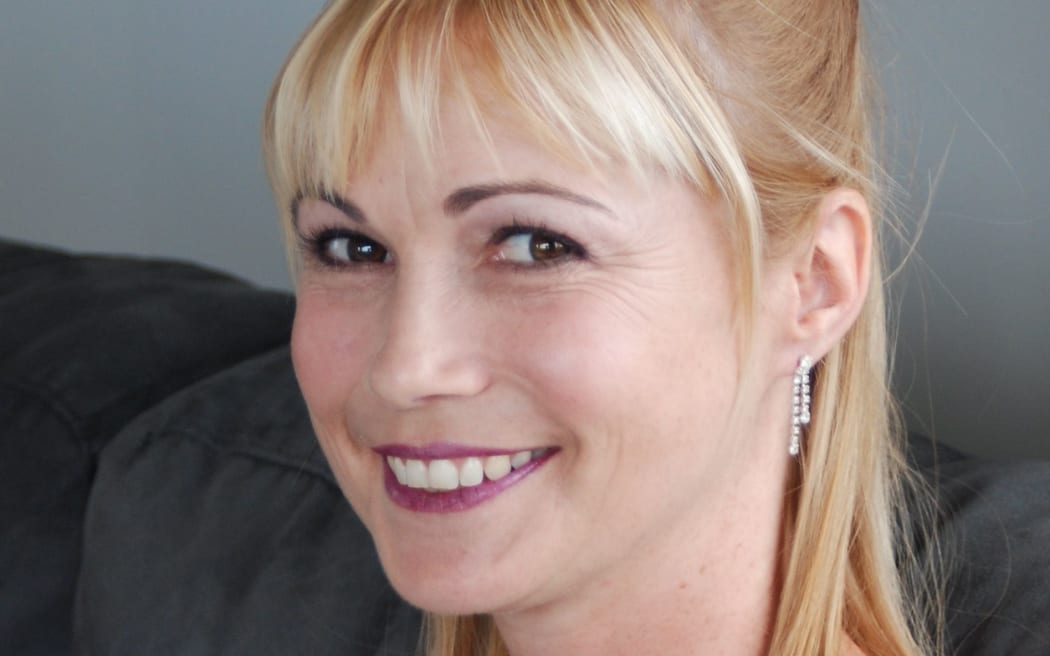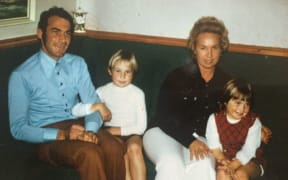The family of a woman who died of cancer caused by inhaling asbestos says their victory over ACC in the High Court is bittersweet.

Deanna Trevarthen Photo: Supplied
Deanna Trevarthen died at the age of 45 in 2016 of mesothelioma, a lung cancer caused by asbestos fibres.
After her death her family continued a legal fight over ACC's rejection of her claim financial help.
Ms Trevarthen said she had been exposed to asbestos as a child, while her father was working as an electrician - an occupation that at the time had high exposure to asbestos.
Between the ages of four and 10, she would hug her father when he was wearing his work clothes and she would also sometimes play at his work sites.
Her claim to ACC for financial help was turned down because she had not been exposed to asbestos at work.
The case ended up in the High Court, which has ruled Ms Trevarthen was entitled to cover because her exposure to asbestos and development of mesothelioma was a personal injury caused by an accident.
Her sister-in-law, Angela Calver, who continued the legal fight after Ms Trevarthen's death told Morning Report they kept on in the hope it would change the outcome for other people.
"There were days when I thought about chucking it in - but I made a promise to her.
"I made a promise to someone that I loved, so I kept on keeping on, as you do."
Ms Calver said Ms Trevarthen's exposure to asbestos was an accident.
"As a child she can remember running up to dad and hugging him when he got home from work ... she also remembers going a couple of his workplaces and breaking up plasterboard. They were her childhood memories," she said.
The family couldn't understand why Ms Trevarthen wasn't eligible for ACC cover when others exposed to it at work were, she said.
"You could hire a builder to come around to your house, he could knock some asbestos, you could both breathe it in, you could both get mesothelioma many years in the future, and the builder would be covered and you wouldn't," she said.
"Mesothelioma is a killer - there is no one who has survived - and it's a man-made killer and so it was always really important to Deanna to rectify that situation."
Ms Calver hoped ACC would make changes as a result of the High Court judgment and offer the same help to people who have mesothelioma through secondary exposure to asbestos outside of their work.
"It's kind of bittersweet. All of us would much rather Deanna was here, 100 percent, but it's good that her legacy will change it and make it better for other people."
The family manged to raise $8000 every three weeks for the cancer drug Keytruda.
"It definitely extended her life and gave her some good times with the family before that stopped being effective against the mesothelioma."
They were not so concerned about reimbursement from ACC as about changing things for other people.
"At the end of the day, that money, we would have found it one way or another - as you do when someone in your family is terminally ill."
"I guess for us, setting a precedent for others to have some hope in being able to access funds, because not all people will be able to solve that problem every three weeks.
One of the family's lawyers, Tom Lynskey, said if ACC honoured the judgment it would set an important precedent.
"For the people who are affected it would mean a great deal, because it changes the treatment they can access, it changes the entitlements that they can access, it potentially changes that the surviving family have access to it as well," he said.
Mr Lynskey told Morning Report the disease had a long latency period and hits very suddenly.
"Your prognosis is very poor, you'll be forced out of work very quickly and it is important that those people be able to access treatment which understandably may not be available under the public health system."
Mr Lynskey said the court finding was unlikely to apply to types of cases, because mesothelioma was a unique disease for which there was no known safe level of exposure to asbestos.
"For another disease such as asbestosis you need cumulative exposure ... whereas with mesothelioma low levels of exposure can cause the disease."
The estate would get some entitlements because there was now ACC cover but the family also wanted to establish a precedent for people in the same situation, he said.
Occupational health expert Professor Bill Glass said this sort of recognition of the implications of secondary exposure to asbestos had been a long time coming.
"Let's hope that it now opens the door to other young children - and they're mainly girls - who unexpectedly developed this dreadful mesothelioma, a life-threatening disease, in middle age."
ACC said was considering the judgment and was not commenting further.




